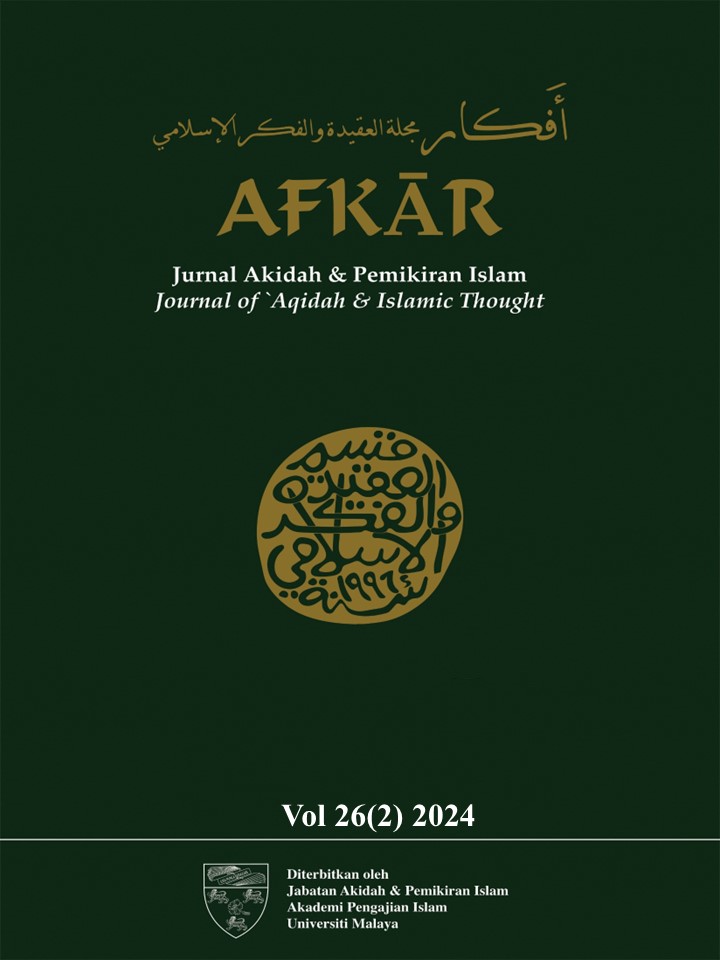Reliability, Validity and Factor Structure of Fitrah Scale
Main Article Content
Abstract
Fitrah, in Islamic psychology, refers to the innate disposition or natural state with which humans are created. This concept encompasses the inherent qualities of purity, morality, and the instinctive inclination towards faith in God. Understanding and measuring fitrah is crucial as it plays a significant role in shaping individual behaviors and overall well-being. Despite its importance, there has been a lack of standardized tools to assess fitrah comprehensively. This study aims to standardize a self-report measure of fitrah with a theoretical and empirical foundation applicable to a diverse Muslim population across various contexts and rooted in the behavioral psychological tradition. The article described the development and preliminary psychometric properties (i.e., reliability and validity) of the Fitrah Scale, an 18-item measurement with a 5-factor structure comprising Beatitude, Moral Uprightness, Devoutness, Innate Goodness, and Faith in God. The Fitrah Scale has shown good content, factorial validity, and internal consistency reliability (i.e., Cronbach’s alpha).
Downloads
Article Details

This work is licensed under a Creative Commons Attribution-NonCommercial 4.0 International License.
References
Abadi, Hamid S. & Khan, Bela. “Human nature based on the Holy Qur’an and Surah: Interpretation of the Fitrah and Self in Islam.” Journal of Integrated Sciences 3(4) (2023): 1–34.
Bhat, Ali Muhammad. “Human Psychology (Fitrah) from Islamic Perspective.” International Journal of Nusantara Islam 4(2) (2016): 61–74. https://doi.org/10.15575/ijni.v4i2.1187.
Fauzia, Nazam, Husain, Akbar & Khan, Shah Mohd. Manual of Spiritual Values Scale. Agra: National Psychological Corporation, 2015.
Fitriyanto, Andry. “The Concept of Fitrah and its correlation with the theory of knowledge development in Islamic Education.” At-Turats: Jurnal Pemikiran Pendidikan Islam 12(2) (2020): 164–175.
George D. & Mallery, P.. SPSS for Windows Step by Step: A Simple Guide and Reference. Bosten: Allyn & Bacon, 2003.
Mohamed, Yasien. "Fitrah and its bearing on the principles of psychology." American Journal of Islamic Social Sciences 12(1) (1995): 1-18. https://doi.org/10.35632/ajis.v12i1.2402
Maslani, Maslani et al.. “Implementation of character education in Islamic education.” Jurnal Education: Jurnal Pendidikan Indonesia 9(1) (2023): 21–30, https://doi.org/10.29210/1202322884.
Mappaselleng, Nur Setiawati, St Samsuduha & Bisyri Abdul Karim. “Manuscript as a Source of Cultural and Spiritual Inspiration” (9th Asbam International Conference (Archeology, History, & Culture in The Nature of Malay) ASBAM 2021), Atlantis Press, 2022: 555–561. https://doi.org/10.2991/assehr.k.220408.076.
Osmani, Noor Mohammad. “Psychological aspects of human behavior in the Qur'an.” Al-Burhan: Journal of Qur'an and Sunnah Studies 2(2) (2018): 41–54.
Razak, Mohd Abbas Abdul. “Human Nature: An Islamic Perspective.” Journal of Islam in Asia Special Issue (1) (2018): 251–274. https://doi.org/10.31436/jia.v8i0.226.
Rothman, Abdallah & Coyle, Adrian. “Toward a framework for Islamic Psychology and Psychotherapy: An Islamic Model of the Soul.” Journal of Religion and Health 57(5) (2018): 31–44. https://doi.org/10.1007/s10943-018-0651-x.

